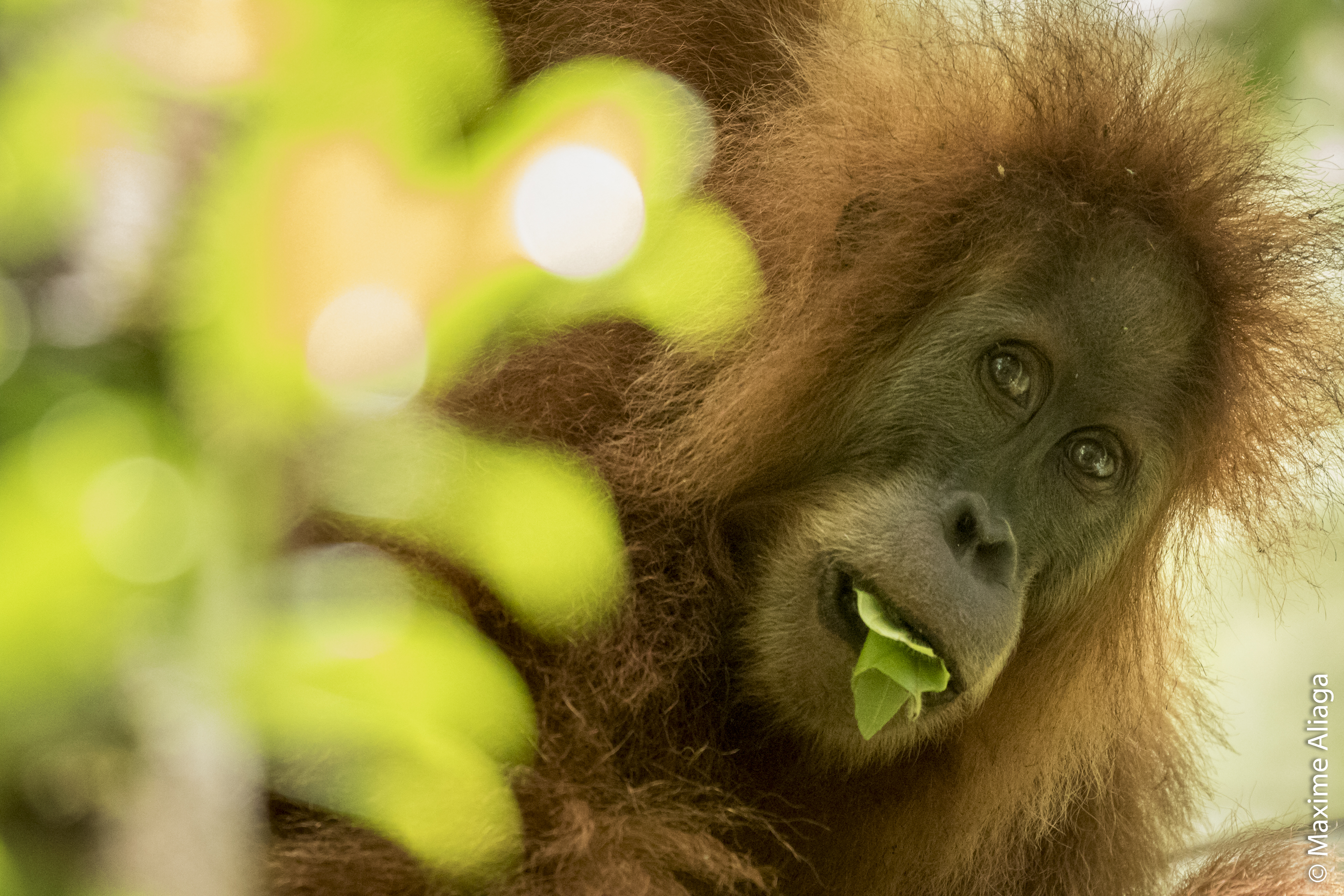Scientists just identified a new orangutan species — and there are only 800 left


In a testament to how much of the world is still a mystery to us, scientists formally identified a new species of orangutan on Thursday, the seventh known species of great ape in addition to two species of gorillas, chimpanzees, bonobos, and the Sumatran and Bornean orangutans. "I discovered the population south of Lake Toba [in Sumatra, Indonesia] in 1997, but it has taken us 20 years to get the genetic and morphological data together that shows how distinct the species is," explained conservation scientist Dr. Erik Meijaard to The New York Times.
The orangutan, dubbed the Pongo tapanuliensis or the Tapanuli orangutan, is the world's rarest and most endangered great ape — just 800 are left in their territory, which stretches a mere 425 square miles in size.
Scientists realized the Tapanuli orangutan was its own distinct species after recovering an oddly-proportioned skeleton of an adult that was killed by locals. What ensued was the "largest genomic study of wild orangutans to date," with scientists concluding that the Tapanuli orangutan had become isolated and distinct from its cousin, the Sumatran orangutan, some 10,000 to 20,000 years ago.
The Week
Escape your echo chamber. Get the facts behind the news, plus analysis from multiple perspectives.

Sign up for The Week's Free Newsletters
From our morning news briefing to a weekly Good News Newsletter, get the best of The Week delivered directly to your inbox.
From our morning news briefing to a weekly Good News Newsletter, get the best of The Week delivered directly to your inbox.
"We have learned how little we actually knew about orangutan evolution despite many decades of research and how much more there is to learn," said Meijaard. "Orangutans are ancient creatures, as old as the very first members of our own genus Homo." Read more about the newest member of the great ape family at The New York Times.
A free daily email with the biggest news stories of the day – and the best features from TheWeek.com
Jeva Lange was the executive editor at TheWeek.com. She formerly served as The Week's deputy editor and culture critic. She is also a contributor to Screen Slate, and her writing has appeared in The New York Daily News, The Awl, Vice, and Gothamist, among other publications. Jeva lives in New York City. Follow her on Twitter.
-
 7 bars with comforting cocktails and great hospitality
7 bars with comforting cocktails and great hospitalitythe week recommends Winter is a fine time for going out and drinking up
-
 7 recipes that meet you wherever you are during winter
7 recipes that meet you wherever you are during winterthe week recommends Low-key January and decadent holiday eating are all accounted for
-
 Nine best TV shows of the year
Nine best TV shows of the yearThe Week Recommends From Adolescence to Amandaland
-
 Blue Origin launches Mars probes in NASA debut
Blue Origin launches Mars probes in NASA debutSpeed Read The New Glenn rocket is carrying small twin spacecraft toward Mars as part of NASA’s Escapade mission
-
 Dinosaurs were thriving before asteroid, study finds
Dinosaurs were thriving before asteroid, study findsSpeed Read The dinosaurs would not have gone extinct if not for the asteroid
-
 SpaceX breaks Starship losing streak in 10th test
SpaceX breaks Starship losing streak in 10th testspeed read The Starship rocket's test flight was largely successful, deploying eight dummy satellites during its hour in space
-
 Rabbits with 'horns' sighted across Colorado
Rabbits with 'horns' sighted across Coloradospeed read These creatures are infected with the 'mostly harmless' Shope papilloma virus
-
 Lithium shows promise in Alzheimer's study
Lithium shows promise in Alzheimer's studySpeed Read Potential new treatments could use small amounts of the common metal
-
 Scientists discover cause of massive sea star die-off
Scientists discover cause of massive sea star die-offSpeed Read A bacteria related to cholera has been found responsible for the deaths of more than 5 billion sea stars
-
 'Thriving' ecosystem found 30,000 feet undersea
'Thriving' ecosystem found 30,000 feet underseaSpeed Read Researchers discovered communities of creatures living in frigid, pitch-black waters under high pressure
-
 New York plans first nuclear plant in 36 years
New York plans first nuclear plant in 36 yearsSpeed Read The plant, to be constructed somewhere in upstate New York, will produce enough energy to power a million homes
